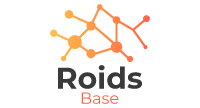- Your cart is empty
- Continue Shopping
HIV Patients Show Good Immunogenicity and Safety with COVID-19 Vaccination
The results of a study on The immunogenicity and safety of Sinovac’s COVID-19 vaccine in HIV-infected patients were published online in The Lancet HIV. The results showed that sinovac’s COVID-19 vaccine, kelliff, showed strong immunogenicity in HIV-infected patients. There was no significant difference in the incidence of adverse events compared with non-infected patients.
The study, conducted by the Sao Paulo research team, Brazil, recruited 511 participants between February 9, 2021 and March 4, 2021, of whom 215 (42%) were hiv-positive and 296 (58%) were non-HIV-positive (control group). It is worth noting that this is the largest prospective cohort study to date on the sample size of PEOPLE with HIV receiving inactivated COVID-19 vaccine.
During the study period, HIV patients aged 18 and older who received two doses of kerraffin at 28-day intervals were regularly followed up at the AIDS Clinic of the University of Sao Paulo. Blood samples were collected before vaccination and 6 weeks after the second dose (day 69). To analyze the correlation between AIDS status, CD4 count and kelleifu immunogenicity.
The data showed that the IgG serum conversion rates of HIV-infected and control groups were 91% and 97% respectively. Meanwhile, the positive rate of neutralizing antibody (NAb) in HIV-infected patients (71%) was significantly lower than that in control group (84%). Compared with hiv-infected patients with CD4 cell count ≥500/μL, hiv-infected patients with CD4 cell count < 500/μL had significantly lower serum conversion rate and positive rate of neutralizing antibody.
In terms of safety, there was no significant difference in the incidence of adverse events between hiv-infected patients and controls. After the first and second doses, the incidence of adverse events in infected patients was lower than that in control group. At the same time, no vaccine-related serious adverse events were reported during the study period.
The results indicated that sinovac vaccine had good immunogenicity and safety in HIV-infected patients. The findings highlight the need to develop immune strategies to improve vaccine immunogenicity in hiv-infected individuals, particularly in subpopulations with low CD4 cell counts. Possible approaches include a booster dose or a higher antigen dose of the vaccine. In September 2021, Brazil’s immunization programme implemented a booster dose of COVID-19 vaccine, giving priority to adults aged 60 years and older and those with immunosuppressed diseases, including HIV.
It is estimated that more than 38 million people worldwide are infected with HIV. The findings provide further support for countries to adapt their COVID-19 prevention and control strategies and vaccination strategies to mitigate the damage caused by COVID-19 to people living with HIV.




